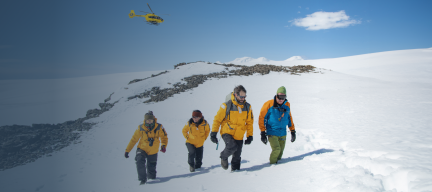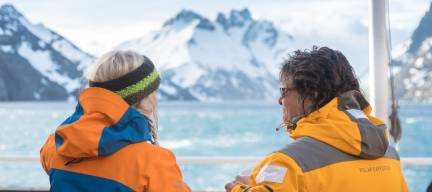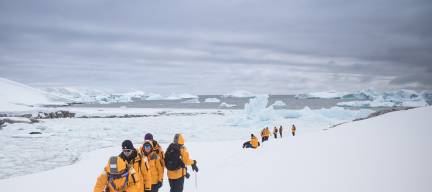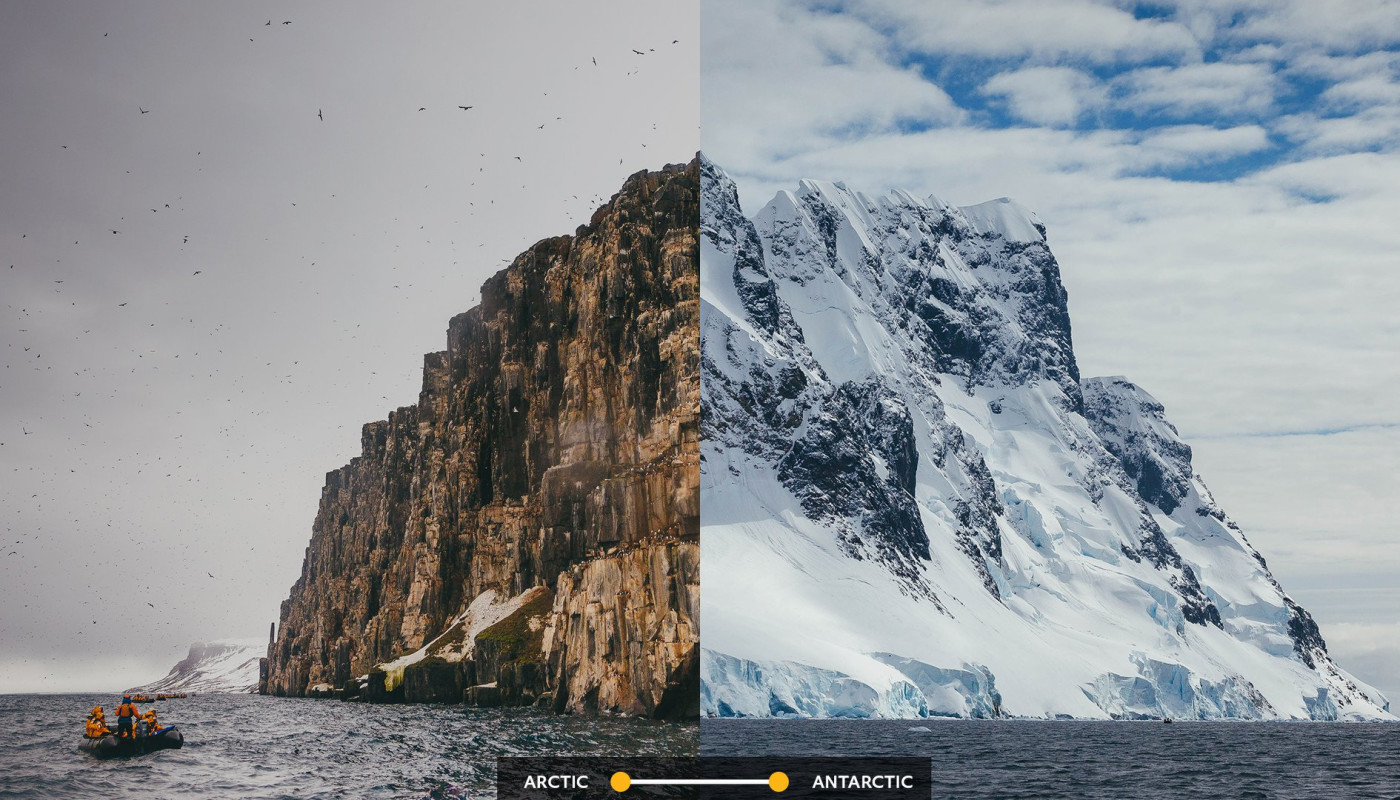
featured – 7 min read
How to choose between the Arctic and Antarctic for your Polar Voyage
Antarctic
See All
5 mins read
Tracing Shackleton’s Footsteps: The Historic Weddell Sea Connection
More than a century ago, a British explorer named Ernest Shackleton set out to achieve what few could even imagine — crossing the Antarctic continent via the Weddell Sea. His ship, the Endurance, never reached land. Instead, it became trapped in sea ice, eventually sinking beneath the surface. Yet, what followed is one of the greatest survival stories in human history. Today, travelers have the rare chance to follow Shackleton’s route through the Weddell Sea, tracing the same ice-laden waters that tested the limits of endurance and leadership. On a modern expedition, you can stand where history froze in time, where courage met catastrophe and perseverance triumphed. For those who crave exploration with a sense of legacy, the Antarctic Peninsula: A Rare Exploration of the Weddell Sea expedition offers a chance to witness this remarkable region. To explore more journeys that honor the spirit of Shackleton, visit our Antarctic expeditions. The Call of the Weddell Sea The Weddell Sea remains one of the most pristine and remote corners of the planet. It’s a place where time feels suspended — where tabular icebergs drift like ancient monuments and seals bask on floes, unbothered by human presence. This is also where Shackleton’s dream took its fateful turn in 1915. When the Endurance was crushed by shifting ice, his crew faced months of uncertainty, surviving on minimal supplies and sheer willpower. Their eventual rescue is often called “the greatest survival story ever told.” Standing there, surrounded by the same stark beauty, travelers often feel a deep connection to that story. The stillness of the sea and the endless horizon whisper echoes of the past, providing a reminder of both […]
Read Post

5 mins read
Navigating the Weddell Sea on an Icebreaker
Read Post

5 mins read
Discover the Untold Stories of the Falkland Islands
Read Post

4 mins read
The Ultimate Birdwatcher’s Paradise: Falkland Islands & South Georgia
Read Post

4 mins read
Polar Trips Filled with Active Off-ship Adventures
Read Post
Arctic
See All
4 mins read
The Lesser-Known Westfjords and Remote East Iceland: Hidden Gems on the Voyage
When travelers picture Iceland, it’s often the famed Golden Circle or Reykjavik’s colorful streets that come to mind. But beyond the usual highlights lie Iceland’s most soul-stirring landscapes — the Westfjords Iceland and the remote East coast, where time slows and the country’s untamed spirit shines brightest. As part of our immersive Iceland expedition cruise, we venture where few travelers have gone before, sailing around rugged peninsulas, secluded fjords, and fishing villages that seem almost untouched by modern life. These are the corners of Iceland that remind you why exploration still matters: because wonder hides in the places least seen. For those curious to experience these untouched frontiers, our Iceland Circumnavigation: Mountains, Volcanoes, and Waterfalls voyage offers an unforgettable route through both the Westfjords and East Iceland. You can also explore our other Arctic expeditions for equally awe-inspiring adventures. The Wild Beauty of the Westfjords The Westfjords Iceland region feels like stepping into another century with its raw, remote, and staggeringly beautiful landscapes. With its steep cliffs, narrow fjords, and meandering gravel roads, it’s a place where travelers often feel like true pioneers. Here, puffins nest in sea cliffs that rise like fortresses, Arctic foxes dart across mossy tundra, and waterfalls spill gracefully into the North Atlantic. The human footprint is faint, just a scattering of fishing hamlets where stories of resilience run as deep as the fjords themselves. One of the joys of exploring this region is its quietness. Away from the tourist routes, you can hear the rhythmic splash of waves, the call of seabirds, and perhaps even the creak of drifting sea ice far offshore. It’s Iceland stripped back to its essence — solitude, strength, and stillness. […]
Read Post

5 mins read
Kayaking Among Icebergs: A Bucket List Experience in Greenland
Read Post

4 mins read
What It’s Like to Sail Across the North Atlantic to the Arctic
Read Post

4 mins read
Whales of the High Arctic: Species You’ll Encounter in Svalbard
Read Post

4 mins read
Polar Trips Filled with Active Off-ship Adventures
Read Post
Experiences
See All
5 mins read
Kayaking Among Icebergs: A Bucket List Experience in Greenland
There’s a moment, somewhere between a paddle stroke and a heartbeat, when the world falls silent and all you hear is the gentle creak of shifting ice. That’s what it feels like to embark on an iceberg kayaking experience in Greenland. The air is crisp, the sea glassy and cold, and the icebergs around you tower like floating cathedrals. For those who crave authentic exploration, this is Arctic travel at its finest — a rare opportunity to experience this stunning part of the world from water level, where every ripple tells a story. We’ve guided travelers through Greenland’s labyrinth of fjords and coastal villages for decades, and each voyage reminds us that this land is alive in ways you can’t fully understand until you paddle through it yourself. If this calls to your sense of adventure, explore our Greenland to Newfoundland: Mountains, Wildlife and Viking History expedition or see our range of Arctic expeditions designed for explorers who prefer to travel beyond the familiar. The Rhythm of the Arctic Kayaking along Greenland’s coast is both peaceful and thrilling. The rhythm of paddling becomes almost meditative, broken only by the sound of ice cracking in the distance. Around you, monumental icebergs drift in shades of blue and white, sculpted by time and temperature. Some are the size of city blocks, others no larger than a cabin. As you glide closer, you notice the texture of the ice — intricate patterns that shimmer like glass in the polar sun. Every iceberg carries its own personality. Some tilt and roll, others hum quietly as trapped air escapes in soft hisses. These waters are where Arctic adventure […]
Read Post

4 mins read
Polar Trips Filled with Active Off-ship Adventures
Read Post

4 mins read
Empower Your Inner Explorer: Why a Solo Polar Trip is the Ultimate Self-Discovery Journey
Read Post
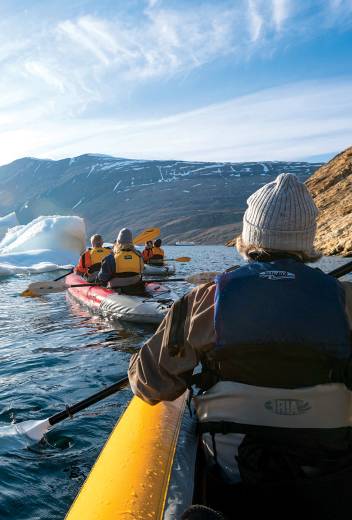
4 mins read
First Timer's Guide to Choosing Your Perfect Polar Adventure Activity
Read Post
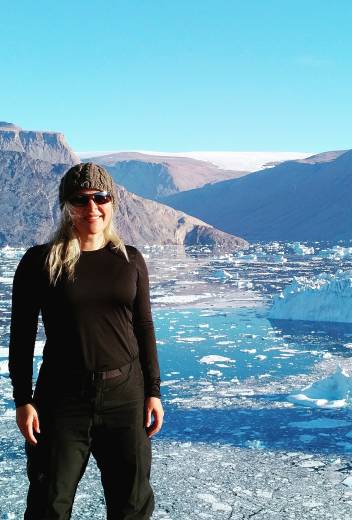
5 mins read
Retreating into Greenland’s Fjords: One Woman’s Arctic Expedition Journey
Read Post
Know Before You Go
See All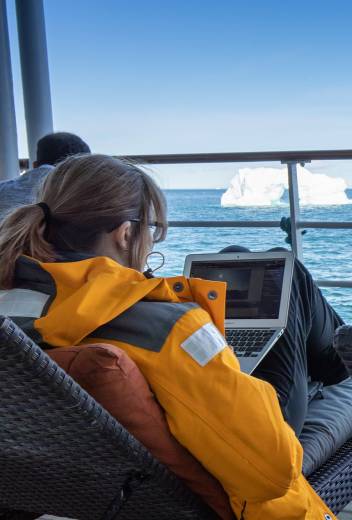
5 mins read
Raise a Glass and Stay Connected: Free Wi-Fi and Alcohol on Our Expedition Cruise Ships
Free Wi-Fi and alcohol on Quark Expeditions’ voyages includes beer, wine and cocktails, as well as basic Internet service while exploring the Arctic and Antarctic.
Read Post
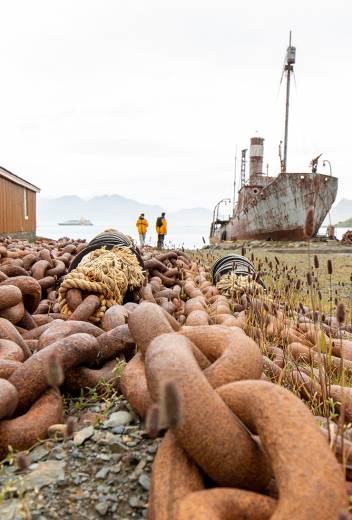
8 mins read
Grytviken, South Georgia Travel Guide
Read Post
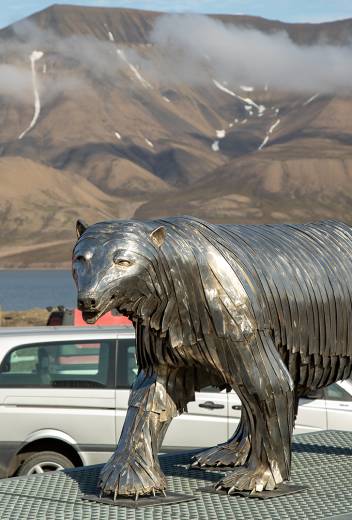
8 mins read
Best Time to Visit Longyearbyen
Read Post
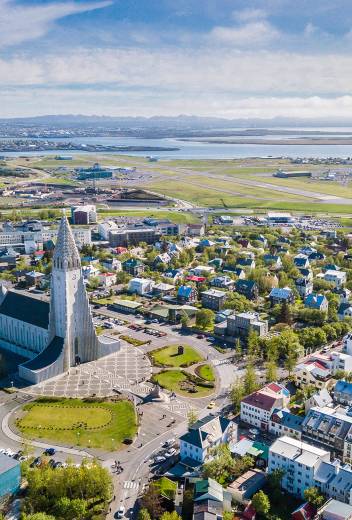
11 mins read
25 Best Things to Do in Reykjavik
Read Post
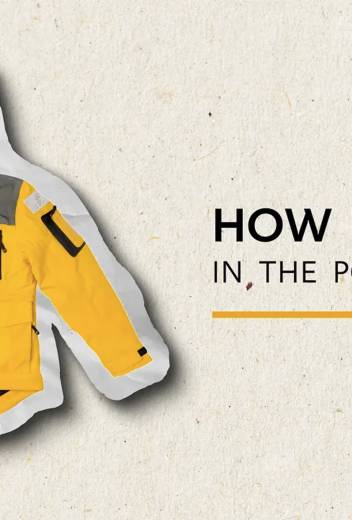
1 min read
How to Dress in the Polar Regions
Read Post
News
See All
1 min read
Learn About Ultramarine’s industry-leading helicopter adventure program
Business Development Manager Chris Hanna, Expedition Guide and Glaciologist Colin Souness, and Director of Helicopter Operations Felix Christians share highlights of Ultramarine’s industry-leading helicopter adventure program. Join the webinar to learn about Quark Expeditions’ heli-adventure program: • Unbeatable Polar Helicopter Experiences: Learn how our two twin-engine helicopters can take you further over the polar landscape than any other helicopter in its class, offering the largest portfolio of adventure options in the industry—including flightseeing, heli-hiking, alpine kayaking and exclusive heli-landing. • Most Experienced Crew: Learn what makes our helicopter crew the best in the Polar Regions. • Adventure Meets Luxury: Discover why these helicopters ensure guests will have a superbly comfortable flight—and are great for viewing the polar landscapes. • Industry-leading Polar Safety: Find out what makes our H145 helicopters the industry leaders in helicopter safety. • Advanced Sustainability: Learn about the sustainability features of the H145 helicopters.
Read Post
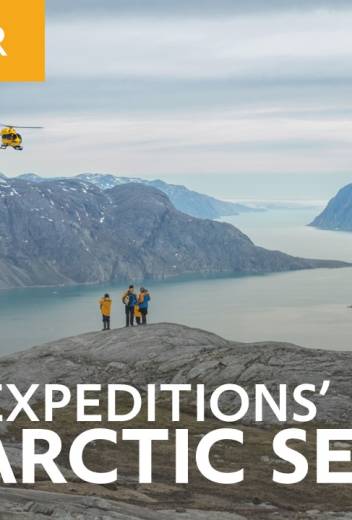
1 min read
Arctic 2025 Season Overview
Read Post

5 mins read
Raise a Glass and Stay Connected: Free Wi-Fi and Alcohol on Our Expedition Cruise Ships
Read Post
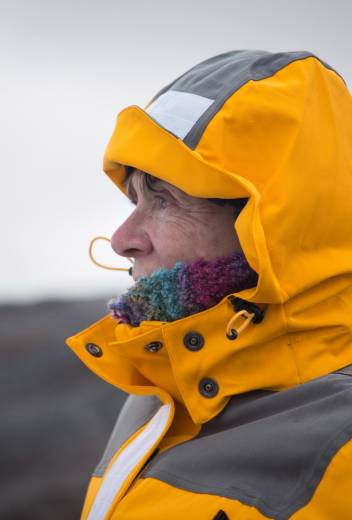
1 min read
Introducing the New Quark Parka
Read Post

6 mins read
Penguins on Ice: How a Hobbyist Captured an Award Winning Photograph
Read Post
Polar Learning Channel
See All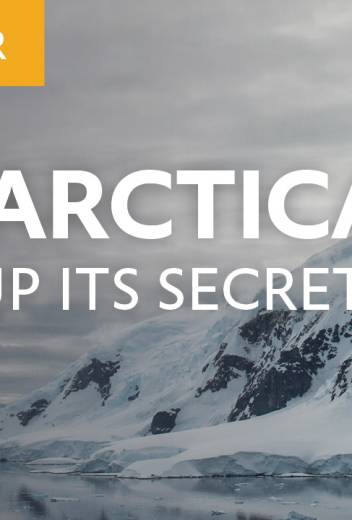
1 min read
Antarctica gives up its secrets
Many countries support scientific research projects in Antarctica, ranging from biology and glaciology to oceanography and astronomy. These scientific studies explore such question as: How fast are the glaciers moving? How many seals are there? What lies under two miles of ice? Quark Expeditions ornithologist Jean Pennycook will highlight several new discoveries and current projects in this webinar that uncovers the secrets of the Antarctic.
Read Post
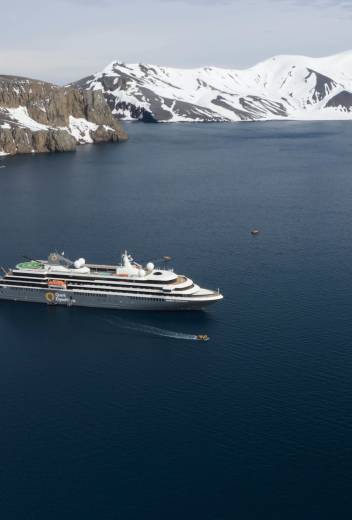
1 min read
Arctic vs. Antarctic: Identifying the Differences
Read Post
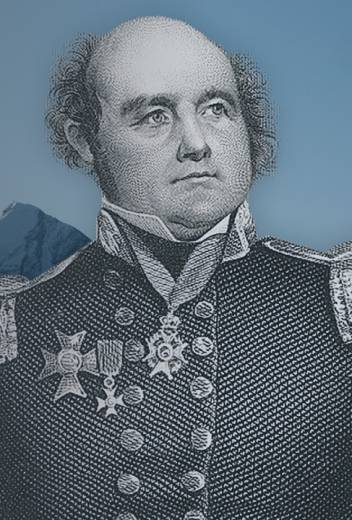
1 min read
Fate of Sir John Franklin
Read Post
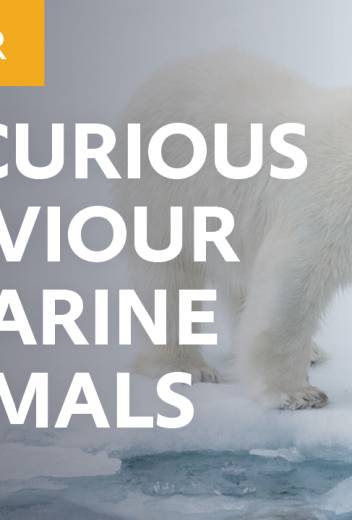
1 min read
The Curious Behavior of Marine Mammals
Read Post

1 min read
Conservation of Whales, Penguins and Petrels
Read Post
Webinars
See All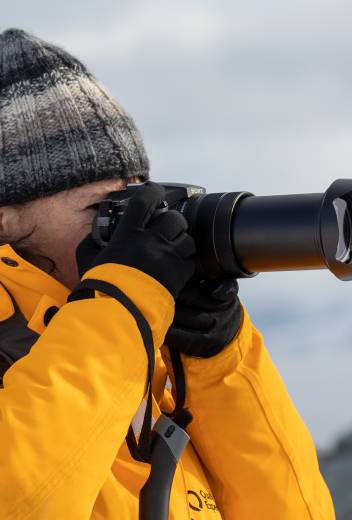
1 min read
World Photography Day: Shooting in the Polar Regions
Michelle shares her expertise in the field of photography, taking you through tips to help you identify the ideal photo opportunity, how to capture the best pictures on your phone, how to take the best wildlife photos, composition techniques, and how to choose the right camera. All to help prepare you to take the best possible shots during your adventure in the polar regions. Host: Michelle Sole, Photography Guide Michelle’s photographic work has been published in Africa Geographic and The Guardian. In her free time Michelle can be found somewhere in the wilderness with her camera in tow.
Read Post
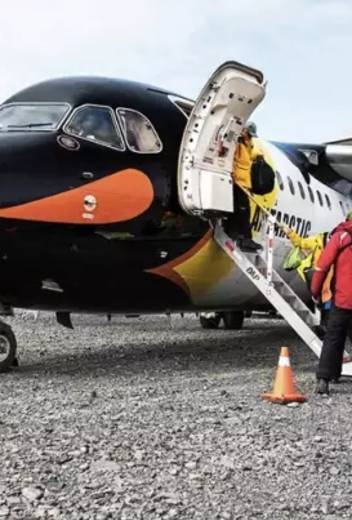
1 min read
Fly the Drake
Read Post
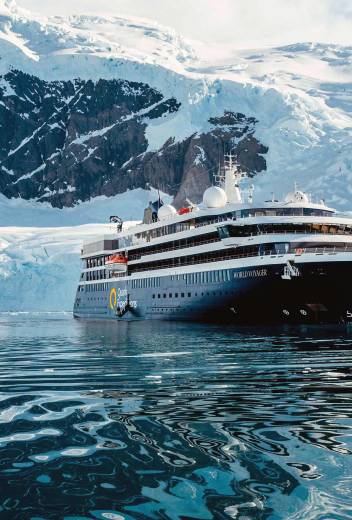
1 min read
Get To Know Our New Ship: World Voyager
Read Post
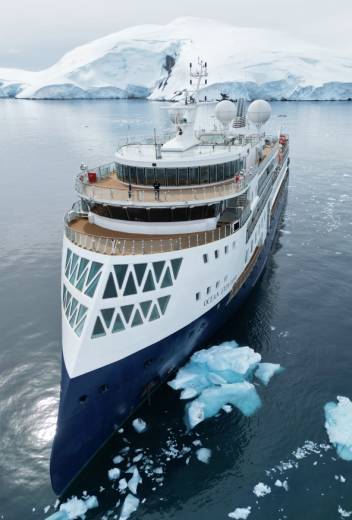
1 min read
Introducing Our New Ship Ocean Explorer
Read Post

1 min read
Antarctic 2024-2025 Highlights & Deals
Read Post
Wildlife
See All
4 mins read
Bird Migration Stories: Barnacle Geese in Svalbard
Each spring, the skies above Svalbard come alive with a remarkable spectacle: the migration of barnacle geese. These elegant birds undertake one of the most extraordinary journeys in the natural world, flying thousands of kilometers from their wintering grounds in Scotland and the Netherlands to the remote Arctic Archipelago of Svalbard. For bird enthusiasts and wildlife photographers alike, witnessing this migration is an unforgettable experience. Svalbard’s high Arctic environment offers a unique combination of accessibility and pristine wilderness, making it a prime destination for observing Arctic birds in their natural habitat. Travelers from the USA, Canada, and Australia are increasingly drawn to birdwatching trips that coincide with the geese’s arrival. On Arctic expeditions, participants can witness the flocks navigating rugged fjords, nesting in cliffside colonies, and interacting with other elements of Arctic wildlife. The Journey of Barnacle Geese Barnacle geese are remarkable for their endurance and precision. Each year, they leave temperate regions in early spring, traveling non-stop across the North Sea and over the Greenland icecap. Their migration is guided by an incredible internal compass and visual cues, enabling them to arrive in Svalbard just in time to breed and raise their young in the short Arctic summer. Observing these birds in flight is not only awe-inspiring but also offers an opportunity to study natural behavior. For wildlife photography, capturing barnacle geese in formation, gliding over icy fjords, or landing near nesting grounds can result in striking images that tell a story of resilience and adaptation. The Spitsbergen Circumnavigation: Rite of Passage is one […]
Read Post
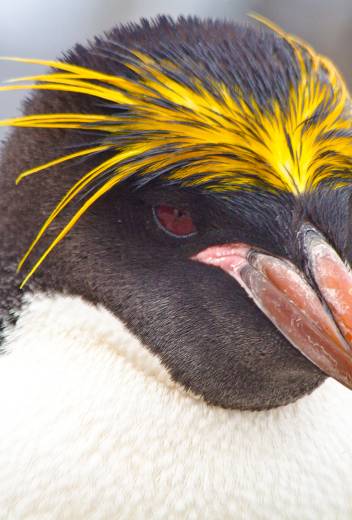
5 mins read
Wildlife Guide: Macaroni Penguin Facts
Read Post
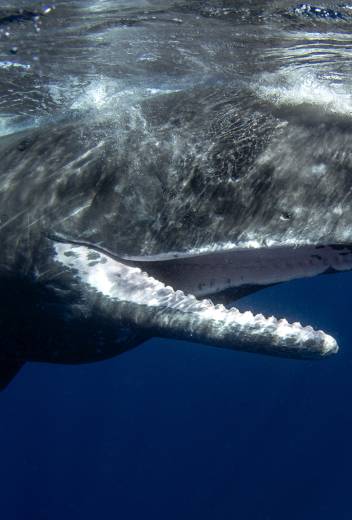
7 mins read
Wildlife Guide: Sperm Whale Facts
Read Post
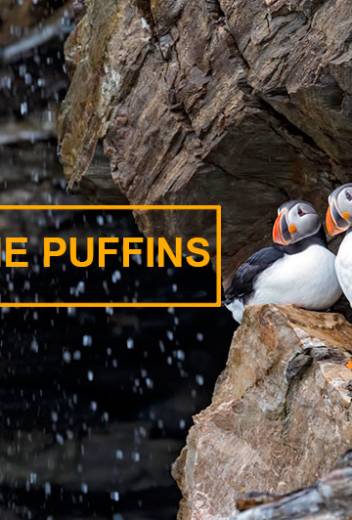
4 mins read
Meet the Puffins: Iconic Seabirds a Passenger Favorite
Read Post
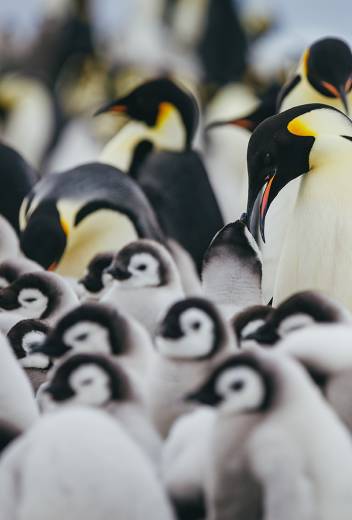
7 mins read
Wildlife Guide: Emperor Penguin Facts
Read Post

